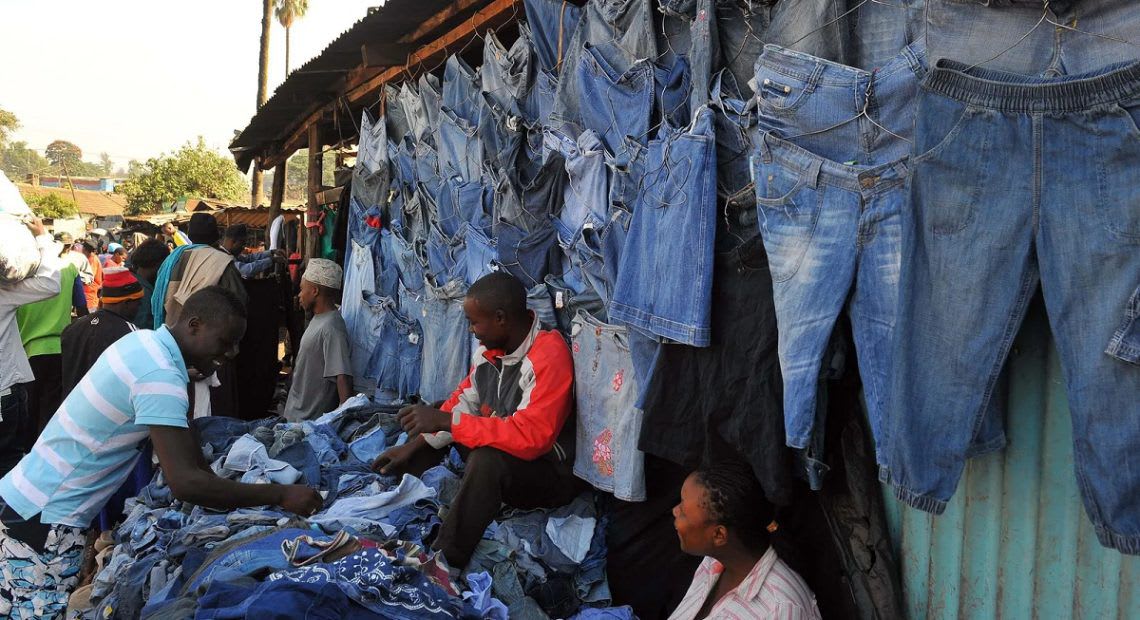
With the cost of new clothing increasing, more Nigerians are opting for second-hand shops to discover unique, fashionable items at significantly lower prices. These thrifting spots offer affordable options and encourage sustainability through garment recycling. In metropolitan areas where individuality and economic prudence are key concerns, these thrift markets act as crucial centers for attainable style.
They foster creativity, safeguard cultural traditions, and back local enterprises, thereby making fashionable living accessible to a wide array of customers.
Secondhand markets offer an extensive array of pre-owned clothes and accessories at significantly lower costs than fresh merchandise. Customers discover exclusive, antique, or high-end items that lend a distinctive flair to their outfits without breaking the bank. By adopting this method, purchasers can create one-of-a-kind assortments showcasing their distinct taste while maintaining budget-friendly spending habits.
ALSO READ: Here are five reasons why you might want to choose either 'Bend-Down-Select' or 'Okrika': 1. Unique Experience: Both products offer distinctive features. 2. Value for Money: They provide excellent cost efficiency. 3. Quality Assurance: These items come with high standards of quality. 4. User-Friendly Design: Their designs make them easy to use. 5. Popular Choice: Many people have found success using these options.
Using and reselling clothes in thrift stores helps cut down on textile waste and lessens fashion's ecological footprint. This approach fosters thrifty practices that minimize resource use and supports a circular economy in the local fashion sector. It allows consumers to adopt a more sustainable purchasing behavior that safeguards natural resources.
Thrift markets function as vibrant communal areas where classic designs blend with modern preferences. These venues enable local sellers and buyers to exchange concepts and fashions while honoring Nigeria’s extensive cultural legacy. Such settings foster a feeling of inclusion and aid in maintaining age-old artisanal skills.
EXPLORE: 5 Reasons Why You Should Consider Buying Secondhand Clothes
A lot of purchasers find ideas for their outfits by revamping or changing second-hand items to match contemporary tastes. This do-it-yourself method in fashion promotes functional innovation and enables old clothes to gain renewed appeal and utility. Not only does this customization make the look more personal, but it also helps prolong the wear of these pieces.
Community thrift stores foster small businesses by reducing startup obstacles for sellers and encouraging micro-enterprise.
Reduced operational expenses and personal engagement with customers enable craftsmen and merchants to flourish, fostering employment opportunities and boosting the local economy. Such conditions lay down a solid groundwork for community-oriented trade and individual financial self-sufficiency.
In general, Nigerian thrift markets are reshaping the fashion industry by offering affordable options that promote conscientious shopping habits along with cultural pride. By emphasizing community engagement, these markets bolster local economies and establish a robust, inclusive fashion sector that serves all stakeholders well.
RECOMMENDED: Did you know about Alajo Somolu, who is known as one of Nigeria's most renowned thrifty collectors?

Out Of Topic Show Konversi KodeHide Konversi Kode Show EmoticonHide Emoticon